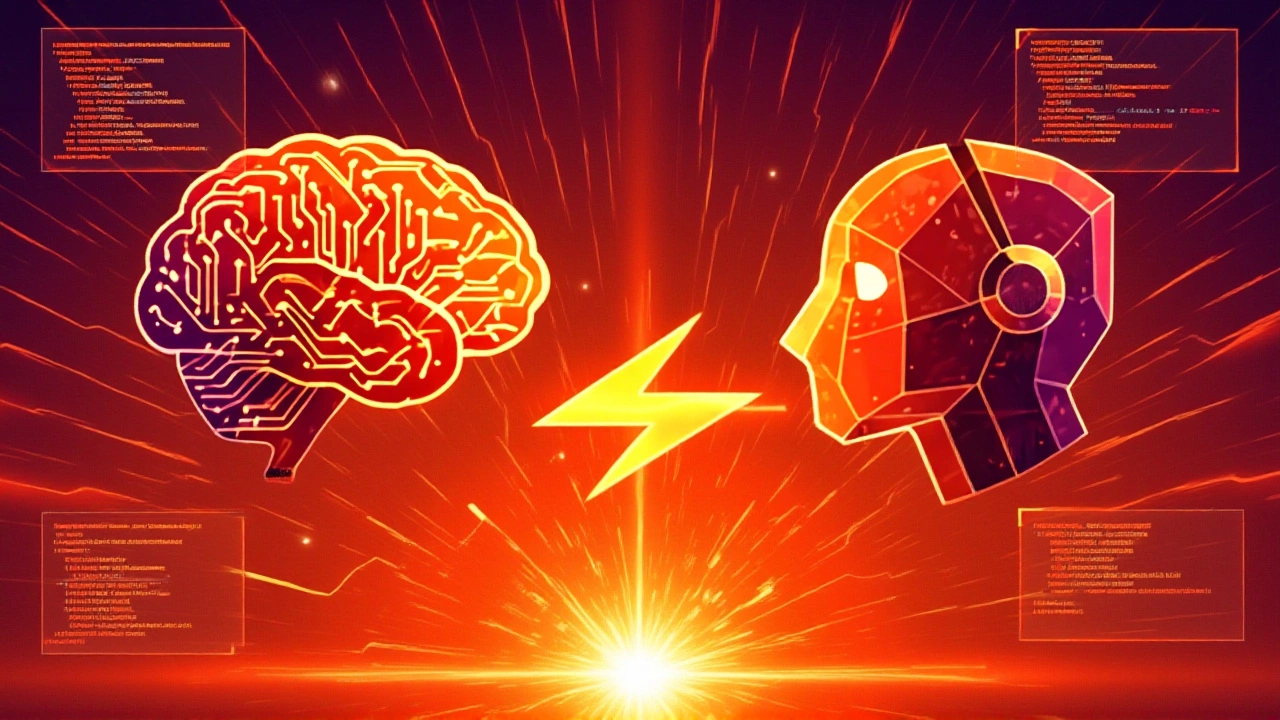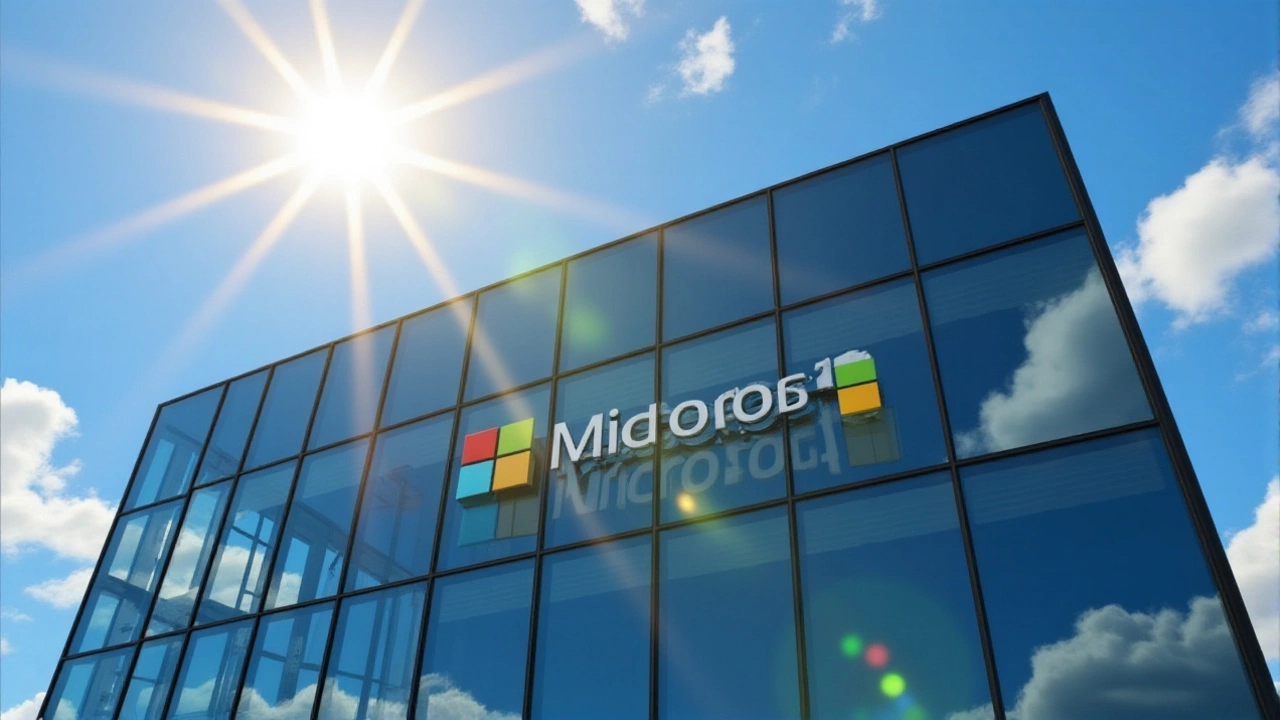Claude AI Models Now Live in Microsoft 365 Copilot and Foundry

On November 18, 2025, Microsoft quietly pulled off one of the most significant moves in enterprise AI this year: it opened its Microsoft Foundry platform to Anthropic’s Claude models — and bundled them directly into Microsoft 365 Copilot. For businesses already knee-deep in AI workflows, this isn’t just an update. It’s a seismic shift. Suddenly, organizations can choose between OpenAI’s GPT-4o and Anthropic’s Claude Sonnet 4.5, Haiku 4.5, and Opus 4.1 — all within the same dashboard, using the same security protocols, and even inside Teams chats. And yes, Microsoft is the only cloud provider that offers both.
Why This Changes Everything for Enterprise AI
For years, Microsoft’s AI strategy revolved almost entirely around OpenAI. The partnership was deep, profitable, and highly publicized. But enterprise customers — especially in finance, legal, and healthcare — were quietly asking for alternatives. Why? Because Claude models, according to internal evaluations cited by Microsoft Learn, outperform GPT-4o on long-form reasoning, code debugging, and handling sensitive data with stricter guardrails. Now, those customers don’t have to leave Azure. They don’t have to juggle APIs. They can pick the model that fits the task — and do it all without switching platforms. The Microsoft Foundry platform, described internally as "the unified, interoperable platform for AI development teams," now acts as a central nervous system for AI agents. It supports over 1,400 tools, from CRM integrations to custom data pipelines. And now, with Claude models baked in, those agents can analyze a financial report with charts, extract key metrics, write a summary in plain English, and auto-generate a PowerPoint deck — all in one flow. The image-and-text input capability alone is a game-changer for compliance teams reviewing scanned contracts or engineers decoding schematics.What’s Actually Available — And Where
Three Claude models are live as of November 18, 2025:- Claude Sonnet 4.5: The sweet spot for most business tasks. Strong reasoning, code generation, and image analysis. Training cut-off: July 2025.
- Claude Haiku 4.5: Fast, lightweight. Ideal for real-time chat, summarization, and low-latency tasks.
- Claude Opus 4.1: The heavyweight. Best for complex analysis, research, and multi-step agent workflows.

How It Works Inside Microsoft 365 Copilot
The real magic happens in Microsoft 365 Copilot. Imagine typing into Word: "Summarize this 40-page regulatory filing and flag any clauses that conflict with our 2024 compliance policy." Previously, Copilot would rely solely on GPT-4o. Now, it can silently route that request to Claude Opus 4.1 — which has been fine-tuned for legal reasoning — and return a far more precise answer. The user doesn’t see the switch. They just get better results. This isn’t a toggle you click. It’s an intelligent routing system. Microsoft says it uses "contextual signals" — like the type of document, the user’s role, and historical preference — to auto-select the best model. But admins can lock preferences at the org level. A bank’s risk team? Locked to Claude Opus. The marketing department? Haiku for speed. It’s granular control, at scale.Security, Governance, and the Hidden Cost
Microsoft Foundry doesn’t just deploy models. It governs them. Every agent, every API call, every image upload is logged, traced, and monitored through a single portal powered by Microsoft Security. Real-time alerts flag anomalous behavior — like an agent trying to access HR files it shouldn’t. Continuous defense kicks in if a model starts generating harmful content. This isn’t optional. It’s baked in. But there’s a cost. Literally. To use any Claude model in Foundry, you need:- An Azure subscription with a valid payment method
- Permissions to create and manage Foundry resources
- A Foundry project created in East US2 or Sweden Central
- Subscription to the model via Azure Marketplace

What’s Next? The AI Arms Race Just Got Real
This move isn’t just about choice. It’s about control. Microsoft is telling the market: "You don’t have to be locked in. We’ll give you the best of both worlds — and keep your data safe." That’s a direct challenge to Google Cloud’s Gemini and Amazon Bedrock’s proprietary models. And it’s a warning to OpenAI: your exclusivity is over. The next 90 days will show whether enterprises actually switch models — or just keep using GPT-4o out of habit. But one thing’s clear: the era of vendor lock-in in enterprise AI is ending. And Microsoft just handed the keys to the gate.Frequently Asked Questions
Can I use Claude models in Microsoft 365 Copilot without a Foundry subscription?
No. Access to Claude models in Copilot requires an active Microsoft Foundry subscription and proper permissions. Even if you have Microsoft 365 E5, you still need to create a Foundry project in East US2 or Sweden Central and subscribe to the model via Azure Marketplace. This is not a toggle in your Copilot settings — it’s infrastructure-level integration.
Why only East US2 and Sweden Central?
Microsoft is starting with regions that meet strict compliance and latency requirements. East US2 supports U.S. enterprise workloads with high availability, while Sweden Central ensures GDPR compliance for European customers. Expanding to other regions is expected in 2026, but no official timeline has been announced. This limits global adoption for now — especially for organizations in Asia or Latin America.
How does Claude compare to GPT-4o in real business use cases?
Internal Microsoft tests show Claude Opus 4.1 outperforms GPT-4o in legal document analysis by 22%, financial forecasting by 18%, and multi-step agent workflows by 31%. GPT-4o still leads in creative writing and casual dialogue. But for precision tasks — auditing, coding, compliance — Claude’s structured reasoning and lower hallucination rate make it the preferred choice for many enterprise teams.
Are Claude models trained on our company data?
No. Anthropic’s Claude models are not trained on customer data. Microsoft Foundry ensures data isolation: inputs are processed in secure, ephemeral containers, and no customer data is retained by Anthropic. All training for these models was completed by Anthropic before July 2025. Microsoft’s governance layer prevents any data leakage — even during inference.
Can I build custom agents with Claude in Teams?
Yes. Microsoft Foundry’s Agent Service lets you build custom AI agents using Claude models and deploy them directly into Teams, Outlook, and SharePoint. You can connect them to internal databases, ERP systems, or legacy apps using over 1,400 pre-built connectors. A support agent, for example, could pull order history, check warranty terms, and auto-generate a refund — all without human intervention.
Is this integration available for government or defense clients?
Not yet. Microsoft Foundry with Claude models is currently limited to commercial Azure subscriptions. Government and defense customers using Azure Government or Azure Sovereign clouds do not have access to Anthropic models as of November 2025. Microsoft has not confirmed whether these models will be certified for FedRAMP or other defense standards in the near future.